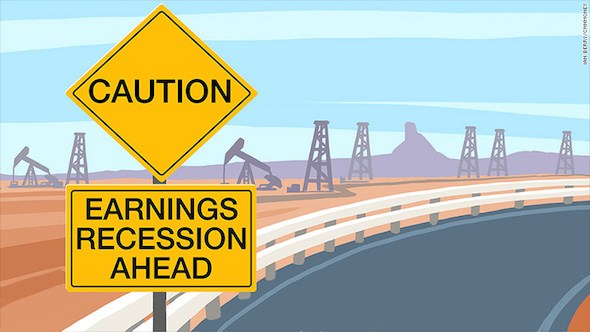Peter Schiff has been saying for months that the US economy isn’t nearly as good as Federal Reserve and government officials want you to believe.
Mainstream analysts and pundits seem to be doing their best to toe the line and paint a rosy picture, but we are starting to see a lot of cracks in the narrative. It’s becoming increasingly difficult to ignore the signs of real trouble in the economy.

A recent CNN story warning us to brace for a “rare recession in corporate profits” as fourth quarter earning begin coming in over the next week serves as a case in point:
Fourth-quarter earnings from S&P 500 companies are expected to shrink by 5%, potentially marking the first back-to-back decline since 2009, according to S&P Capital IQ. The timing couldn’t be much worse for the stalled-out U.S. stock market. Wall Street just wrapped up its worst year since 2008 and stocks are trading at expensive valuations compared with historical norms.”
CNN blames the crash in oil prices and the dramatic rise in the US dollar (aka a dollar bubble) for putting the squeeze on earnings. Businesses based on commodities, particularly energy related companies, are expected to be hit particularly hard. But as CNN points out, the earnings trouble is not purely commodity based:
Even if the gloomy energy sector is excluded, S&P 500 earnings would be expected to rise just 0.6%.”
Since before the Fed raised interest rates in December, Peter has insisted the economic data doesn’t support the move. As a result, Peter believes the Fed won’t be able to maintain the increase. In fact, he’s said the Fed will likely drop rates back to zero and initiate another round of quantitative easing. The Fed may even have to take rates below zero.
Of course, virtually nobody in the mainstream is saying this. But there is an interesting observation in the CNN story that hints at exactly what Peter is saying:














Leave A Comment